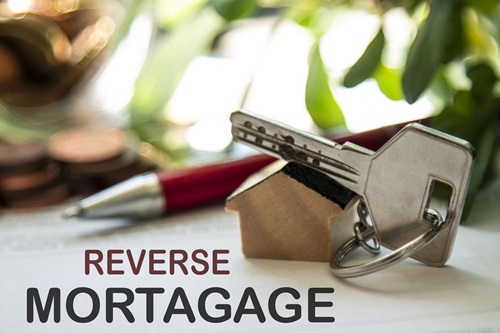
Retirement has long been viewed as a time for relaxation and enjoyment, a well-deserved reward for years of hard work. However, the reality for many seniors today is quite different. As the debt crisis continues to affect many Americans, older adults are facing significant financial challenges, particularly with rising healthcare costs, property taxes, and personal debts. Therefore, understanding the role of a reverse mortgage can be crucial for navigating these complexities.
The Growing Senior Debt Crisis
With nearly half of Americans expecting to retire in debt, it’s no wonder that retirees often find themselves trading the daily stress of work for financial worries. According to data from the Federal Reserve Bank of New York, the total debt for Americans over 70 reached $1.1 trillion in 2019—a staggering 543% increase since 1999. This dramatic rise in debt among seniors prompts a closer look at its key contributors.
Key Contributors to Senior Debt
Medical Debt
One of the primary financial burdens that retirees face is medical debt. Healthcare costs can escalate quickly, leading to overwhelming financial pressure. For example, unpaid medical bills among older Americans totaled nearly $54 million in 2020, marking a 20% increase from the previous year. Even those with Medicare coverage often find themselves grappling with out-of-pocket expenses, which can significantly impact their financial stability.
Credit Card Debt
In addition to rising healthcare costs, many older Americans are relying on credit cards to manage daily living expenses. Currently, Americans collectively hold over $1 trillion in credit card debt, with older generations often carrying the highest balances. Baby Boomers, for instance, average about $6,245 in credit card debt, while the Silent Generation typically carries around $3,316. This burden can become especially heavy for retirees on fixed incomes, where high-interest payments can make financial stability feel out of reach.
Housing and Mortgage Debt
While homeownership has historically been a source of pride for many seniors, the reality today is that nearly 10 million older homeowners still carry mortgage debt. Approximately 80% of Americans aged 65 and older own homes; however, many allocate more than 30% of their income to housing expenses. This includes not just mortgage payments but also property taxes, insurance, and maintenance costs.
The Importance of Home Equity
Despite these challenges, home equity represents a significant asset for many retirees. In fact, housing wealth makes up nearly two-thirds of total wealth for the average American household. So why aren’t more older Americans tapping into this valuable resource?
 Reverse Mortgage in Charleston SC
Reverse Mortgage in Charleston SCAddressing Common Misconceptions About Reverse Mortgage
A recent Gallup poll revealed that 71% of non-retired adults worry about funding their retirement, with a significant portion feeling very anxious about it. One potential solution lies in the often-misunderstood reverse mortgage in Charleston SC. Unfortunately, many seniors dismiss this option due to prevalent myths and misconceptions. Let’s explore some of these common misunderstandings about reverse mortgages.
Reverse Mortgage Myth: “The Bank Will Take My Home”
This myth is misleading. With a reverse mortgage, you maintain ownership of your home. The lender simply places a lien on the title to guarantee repayment. You remain responsible for property taxes, insurance, and maintenance. Importantly, the loan only becomes due when you leave the home permanently, typically resolved by selling it.
Reverse Mortgage Myth: “I Can’t Pass the Home to My Kids”
Another common misconception is that reverse mortgages prevent heirs from inheriting the home. In reality, heirs have several options when the loan comes due. They can pay off the loan to keep the home, sell it and retain any excess funds, or deed the home back to the lender. Additionally, this type of mortgage is non-recourse, meaning that you or your heirs will never owe more than the home’s worth when it is sold.
Reverse Mortgage Myth: “Reverse Mortgage Is Too Expensive”
Many seniors believe reverse mortgages in Charleston SC come with high costs. However, closing costs are comparable to traditional mortgages, and any lender fees can often be rolled into the loan itself. Thus, out-of-pocket expenses can be minimal.
Reverse Mortgage Myth: “You Should Only Get a Reverse Mortgage If You’re Desperate”
In fact, reverse mortgages can serve as a valuable financial tool, offering flexibility in retirement. They can help pay off existing debts, cover healthcare costs, or create an emergency line of credit. Many financial planners now considerthis type of mortgage as part of a comprehensive financial strategy.
Understanding Reverse Mortgage: A Practical Solution
So, what exactly is a reverse mortgage? It is a government-insured loan program designed for homeowners aged 62 and older. This option allows you to convert part of your home equity into cash, helping you manage living expenses while staying in your home. The loan doesn’t need to be repaid until a qualifying event occurs, such as when the last borrower leaves the home.
FAQs About Reverse Mortgage
Who Can Qualify?
To qualify for this type of mortgage, you must be at least 62 years old and reside in your home as your primary residence. Other factors include the home’s condition, as it must meet specific standards set by housing authorities.
How Much Can You Access?
The amount you can access varies based on factors such as your age, the type of reverse mortgage, the value of your home, and current interest rates. Generally, older homeowners are eligible for more funds.
How Can You Use the Funds?
You can use the proceeds from this type of mortgage in numerous ways, including consolidating debt, covering healthcare costs, or even helping family members in need. The flexibility of these funds makes them a powerful resource in retirement.
How Do You Determine if It’s Right for You?
Finding a reputable lender is essential for assessing whether a reverse mortgage suits your financial situation. They should evaluate your goals and provide transparent information to help you make an informed decision. Furthermore, every applicant must undergo a counseling session with an independent counselor to ensure they fully understand the program.
Embrace the Power of Home Equity
With the growing number of seniors facing financial challenges, this type of mortgage presents a viable solution for many. By leveraging home equity, retirees can relieve some of the burdens associated with debt, healthcare costs, and daily living expenses. Get in touch with South Carolina Reverse Mortgage Services more fore information.
If you’re navigating the complexities of retirement finance, consider the potential benefits of a reverse mortgage. Explore your options and discover how tapping into your home equity can lead to a more secure and comfortable retirement. Call South Carolina Reverse Mortgage Services now.

No comments:
Post a Comment